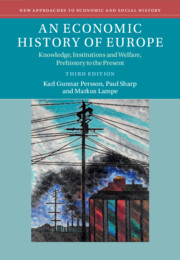Refine search
Actions for selected content:
615873 results in History
Florence Mok. Covert Colonialism: Governance, Surveillance and Political Culture in British Hong Kong, c.1966–97 Studies in Imperialism. Manchester: Manchester University Press, 2023. Pp. 296. $130.00 (cloth).
-
- Journal:
- Journal of British Studies / Volume 64 / 2025
- Published online by Cambridge University Press:
- 06 October 2025, e84
-
- Article
- Export citation
Peter Stansky. The Socialist Patriot: George Orwell and War Stanford Briefs. Stanford: Stanford University Press, 2023. Pp. 130. $13.98 (paper).
-
- Journal:
- Journal of British Studies / Volume 64 / 2025
- Published online by Cambridge University Press:
- 06 October 2025, e82
-
- Article
- Export citation
Alan Marshall. Intelligence and Espionage in the English Republic c.1600–60 Politics, Culture and Society in Early Modern Britain. Manchester: Manchester University Press, 2023. Pp. 263. $130.00 (cloth).
-
- Journal:
- Journal of British Studies / Volume 64 / 2025
- Published online by Cambridge University Press:
- 06 October 2025, e69
-
- Article
- Export citation
Bryce Evans. Feeding the People in Wartime BritainFood in Modern History: Traditions and Innovations, London: Bloomsbury, 2022. Pp. 200. $39.95 (cloth).
-
- Journal:
- Journal of British Studies / Volume 64 / 2025
- Published online by Cambridge University Press:
- 06 October 2025, e85
-
- Article
- Export citation
Christian Connection Women as Biblical Interpreters in Antebellum America, 1820–1841
-
- Journal:
- Church History , First View
- Published online by Cambridge University Press:
- 03 October 2025, pp. 1-25
-
- Article
-
- You have access
- Open access
- HTML
- Export citation
How to Become a Big Man in Africa: Subalternity, Elites, and Ethnic Politics in Contemporary Nigeria by Wale Adebanwi DOI:10.2307/jj.15369554 Bloomington, IN: Indiana University Press, 2024. Pp. lvii+526. US$49 (pbk).
-
- Journal:
- The Journal of Modern African Studies , First View
- Published online by Cambridge University Press:
- 03 October 2025, pp. 1-2
-
- Article
- Export citation
Ujamaa’s Army: The Creation and Evolution of the Tanzania People’s Defence 1964–1979 by Charles G. Thomas Ohio University Press, Athens, 2024. Pp. vii–xv, 282. ISBN 978-0-8214-2458-6, Price: $34.95
-
- Journal:
- The Journal of Modern African Studies , First View
- Published online by Cambridge University Press:
- 03 October 2025, pp. 1-2
-
- Article
- Export citation
Reading the Illegible Indigenous: Writing and the Limits of Colonial Hegemony in the Andes. By Laura León Llerena. Tucson: University of Arizona Press Fall, 2023. Pp. 264. $65.00 cloth; $65.00 eBook.
-
- Journal:
- The Americas , First View
- Published online by Cambridge University Press:
- 03 October 2025, pp. 1-2
-
- Article
- Export citation
Slavery, Resistance, and Identity in Early Modern West Africa: The Ethnic State of Gajaaga by Makhroufi Ousmane Traoré. Cambridge: Cambridge University Press, 2024. ISBN 978-1-009-28234-5. Price: 35€
-
- Journal:
- The Journal of Modern African Studies , First View
- Published online by Cambridge University Press:
- 03 October 2025, pp. 1-2
-
- Article
- Export citation

An Economic History of Europe
- Knowledge, Institutions and Welfare, Prehistory to the Present
-
- Published online:
- 02 October 2025
- Print publication:
- 02 October 2025
-
- Textbook
- Export citation
Tables
-
- Book:
- An Economic History of Europe
- Published online:
- 02 October 2025
- Print publication:
- 02 October 2025, pp ix-ix
-
- Chapter
- Export citation
2 - Secret-Keepers and Mythmakers
- from Part I - Struggle to Conceal
-
- Book:
- Curating the Colonial Past
- Published online:
- 12 September 2025
- Print publication:
- 02 October 2025, pp 58-86
-
- Chapter
- Export citation
7 - Money, Credit and Banking
-
- Book:
- An Economic History of Europe
- Published online:
- 02 October 2025
- Print publication:
- 02 October 2025, pp 155-177
-
- Chapter
- Export citation
Copyright page
-
- Book:
- Curating the Colonial Past
- Published online:
- 12 September 2025
- Print publication:
- 02 October 2025, pp iv-iv
-
- Chapter
- Export citation
Boxes
-
- Book:
- An Economic History of Europe
- Published online:
- 02 October 2025
- Print publication:
- 02 October 2025, pp xiii-xiv
-
- Chapter
- Export citation
2 - Experimental Regionalism
-
- Book:
- The Colombo Plan
- Published online:
- 09 October 2025
- Print publication:
- 02 October 2025, pp 56-95
-
- Chapter
- Export citation
Preface to the Second Edition
-
- Book:
- An Economic History of Europe
- Published online:
- 02 October 2025
- Print publication:
- 02 October 2025, pp xvii-xviii
-
- Chapter
- Export citation
Part I - Struggle to Conceal
-
- Book:
- Curating the Colonial Past
- Published online:
- 12 September 2025
- Print publication:
- 02 October 2025, pp 33-164
-
- Chapter
- Export citation
Glossary
-
- Book:
- An Economic History of Europe
- Published online:
- 02 October 2025
- Print publication:
- 02 October 2025, pp 290-299
-
- Chapter
- Export citation
Central–local relations in early People’s Republic of China’s agricultural procurement reform: The case of the ‘Three-Fix’ policy in Funan County
-
- Journal:
- Rural History , First View
- Published online by Cambridge University Press:
- 02 October 2025, pp. 1-19
-
- Article
-
- You have access
- Open access
- HTML
- Export citation
